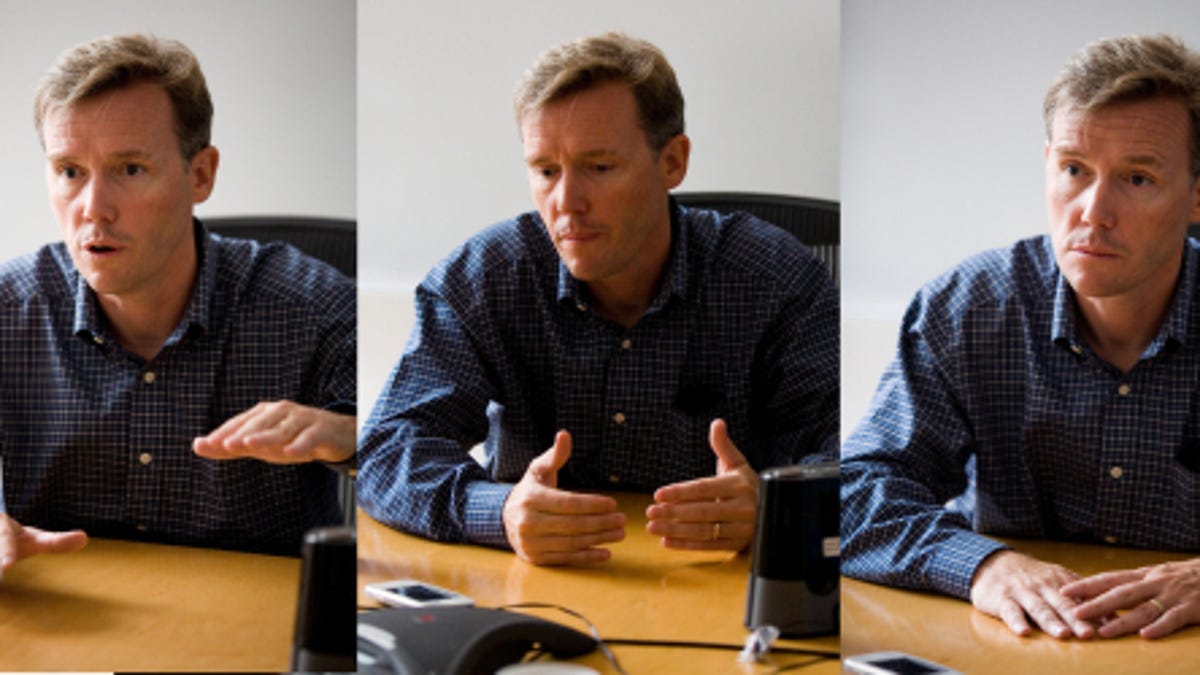Michael Robertson bets on talk-radio cataclysm
Dar.fm founder predicts that as talk radio labors to stay relevant, it must embrace Web distribution, where his TiVo-for-radio service will be waiting.

Talk radio is careening toward a technology revolution and tech entrepreneur Michael Robertson may be the man to lead it.
Six months after launching Dar.fm, billed as a TiVo for radio, Robertson's startup has expanded the number of stations it offers listeners access to from 100 to 5,000. The company enables subscribers to record, in a way similar to TV DVRs, from among more than 20,000 radio shows, including Rush Limbaugh, and NPR's Fresh Air and Car Talk. The service then streams or downloads the shows to PCs, mobile phones, or set-top boxes.
Robertson has plans to add the ability to record shows on the fly, as people listen to the radio, like we used to do in the era of cassette tapes.
Anytime in the past that Robertson has moved copyrighted material around without permission like this, he typically has been sued. He concedes that his company is still too small for the big guys, Clear Channel and CBS Radio (which shares the same parent company as CNET), to care much about...yet.
But Robertson's history is to come upon media sectors moving to their own beat and rhythm and fling technology into the mix like an M-80.
"It's going to be fascinating to see what happens in the radio business over the next three to five years," Robertson said last week in an interview with CNET. "This is a car accident waiting to happen. You have traditional broadcast radio, Sirius XM (satellite radio), and the Internet start-ups such as Pandora. They are all approaching the audio business with different assets, different royalty structures, and they're going to realize that they're all in the same business. They think of themselves as separate right now but everything is going IP."
Robertson sees opportunity, just like he did nearly 15 years ago when he launched MP3.com. The company was an early file-sharing network that eventually launched one of the first cloud music services. Robertson made copies of his users' music and enabled them to store their tunes on his company's servers. They could then retrieve the music via the Web. MP3.com was sued and eventually sold. CBS Interactive, CNET's publisher, now owns the brand name.
The grandchild of MP3.com is MP3tunes.com, another Robertson cloud service that is testing copyright law. EMI has accused Robertson and MP3tunes.com of copyright violations in a suit and the case is pending.
Robertson's goals are the same with Dar.fm as they were with MP3.com. He wants to build a better distribution method to help "keep radio relevant." But can he do it without getting sued?
"I think so," he says. "I've talked to some insiders and they get it. I can help them get their shows on new hardware; smartphones, PCs, and set-top boxes...DVRs have helped TVs. TV viewing has gone up 40 percent and radio's market share has fallen. I think they might have some consternation when they first see what we're doing but they'll realize that it gives their listeners what they want, which is the ability to listen when and where they want."
Right now Dar.fm is concentrating on talk radio but he predicts there's also a lot of upheaval coming for music radio. He said the royalty rates for satellite and Internet radio are just too high to make any money. Coincidentally, since Robertson's interview, Sirius XM, the top satellite radio service, filed an antitrust suit against SoundExchange and the American Association of Independent Music.
Sirius alleges that those companies conspired with other groups to block it from obtaining cheaper music licenses.

